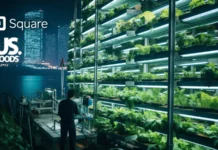The Food and Agriculture Organisation of the United Nations (FAO) recently published a report assessing the sustainability of agricultural plastic products. “The report recommends replacing non-biodegradable conventional polymers with biodegradable bio-based polymers. We welcome this recognition of the environmental benefits of these bioplastic products,” commented François de Bie, Chairman of European Bioplastics (EUBP).
Also Read: FMC Corporation to Provide Corteva Agriscience With Seed Treatment Insecticides
The FAO study focuses on agricultural plastic products used in a range of different value chains. An included qualitative risk assessment analyses 13 specific agricultural products. “Significantly, for six out of 13 assessed products, biodegradable bio-based plastics are recommended as preferable substitutes for conventional plastic material”, said de Bie. The list of recommended products included mulch films, fishing gear, polymer coated fertilizers, tree guards and shelters, plant support twines, and pesticide impregnated fruit protection bags.
Mulch films are of crucial importance as they represent the second largest share of plastic films used in agriculture. “Mulch films made from biodegradable plastics provide significant benefits where retrieval, recycling, and reuse pose significant problems. These are specifically designed to biodegrade effectively and can therefore be incorporated into the soil post-harvest,” explained François de Bie. In contrast, especially thin non-biodegradable mulching films display a poor selection, management, and retrieval, which can lead to a significant level of pollution on the fields. Even where conventional mulch films are removed from the field, they are often heavily contaminated with soils and plant residues, which inhibits the recycling process.
The FAO report also emphasises the need to develop polymers that are biodegradable in the marine environment. “Although any kind of littering, should be avoided, a certain level of unintentional loss of fishing gear will always take place. Therefore, it is important to foster the adoption of biodegradable solutions”, stated the Chairman of EUBP. In the case of used products contaminated with fish residues, e.g., fish boxes usually made from conventional plastics, biopolymers, bioplastics according to FAO, may ease the recycling process.




